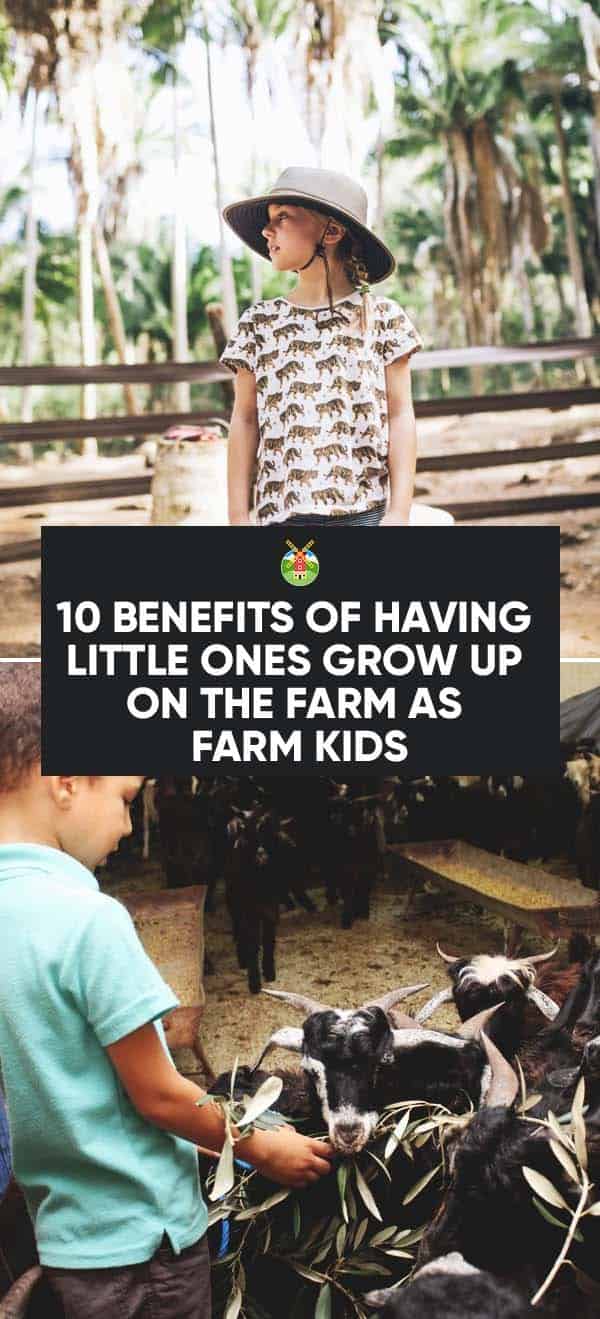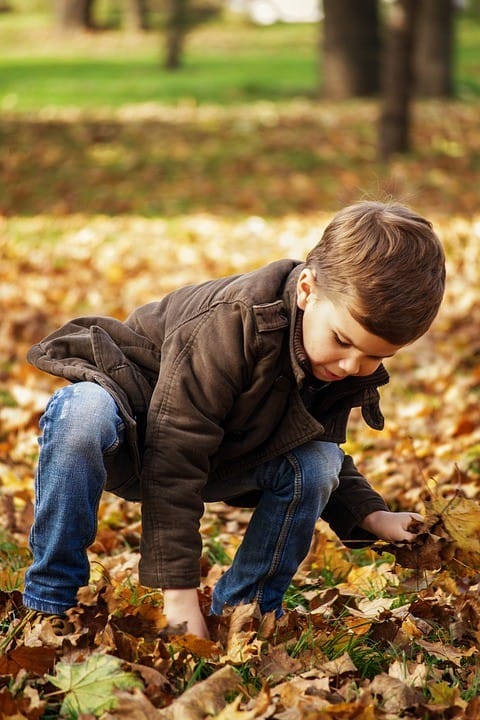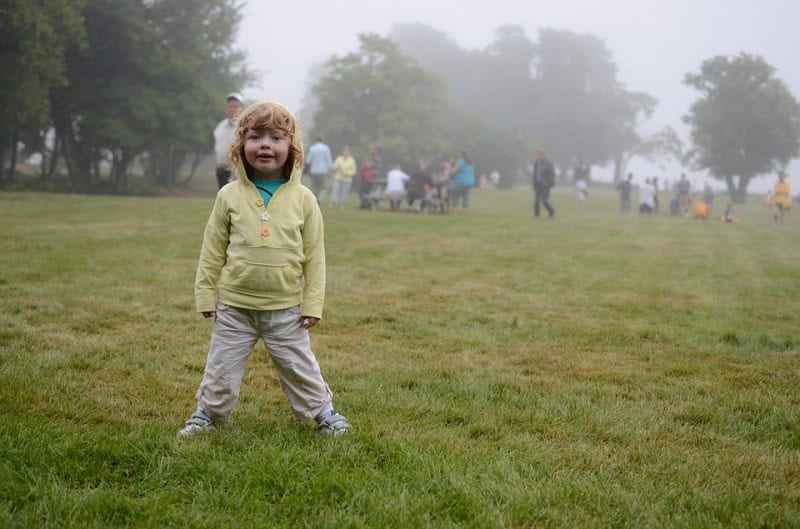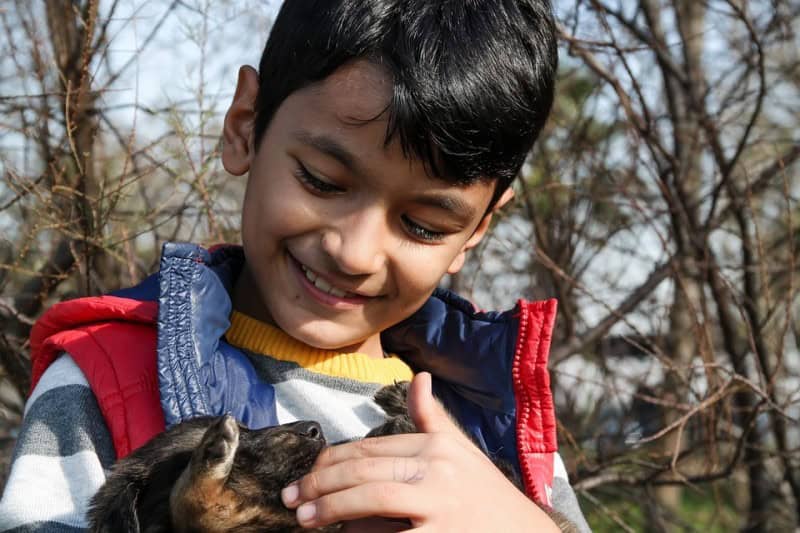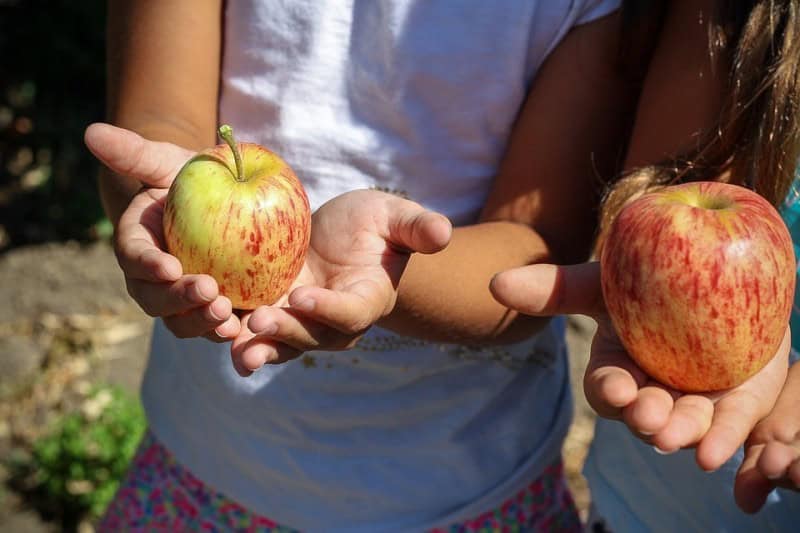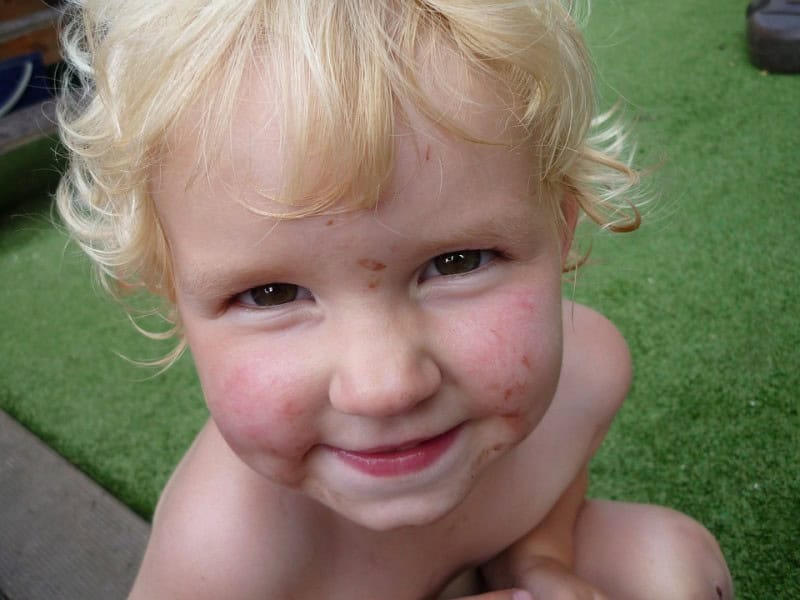In today’s fast-paced society where kids are constantly on-the-go, it’s easy to overlook the advantages of a slower pace of life. Raising children on a farm, in the traditional sense, could be just what we need to rebalance our priorities and reap some unexpected rewards. Let’s explore some of the benefits that come with this approach.
The Benefits for Farm Kids
They learn responsibility at an early age
Initiating children into household responsibilities early on has a positive impact on their development. By giving them tasks, you’re fostering a sense of contribution to the family unit, which is essential for their growth. It’s crucial to strike a balance between acknowledging their efforts and providing constructive feedback. When they start taking on chores, be mindful not to be overly critical or demanding.
Instead, focus on praising their accomplishments and encouraging them to continue helping out. Many parents link chores with allowances, but I believe it’s more effective to divide tasks into two categories: contributions and financial incentives. This way, children understand that some responsibilities are essential for the household’s smooth operation, while others can be done for a reward. For instance, our daughters have specific tasks they must complete daily.
Once these tasks are finished, they’re free to choose from a list of additional jobs on our shared bulletin board. These tasks typically belong to my husband or me, but by doing them, the girls earn a modest payment ranging from fifty cents to two dollars. However, it’s essential to note that their everyday chores must be completed before they can access these rewards.
Country Kids are Smarter
I must confess that what I dislike most is sharing my child’s giftedness with teachers. The thought of being perceived as one of those boastful parents who gush about their kids and elicit eye-rolls from educators makes me squirm. I get it, though. My kid has consistently achieved grades no lower than a B, with the rare exception of a B. Since third grade, she’s been enrolled in the Gifted Talented program.
Her educational journey has been marked by a mix of rural and urban settings, which I’m thankful for. Interestingly, Quartz Magazine suggests that kids from rural areas have cognitive abilities 57% higher than those from cities, with city-raised children boasting 52% such abilities. In my opinion, smaller class sizes may be a significant factor in this disparity.
The Ability to Run
As a child, my experience was split between town and country life. In the countryside, I’d ride my bike down the street, across the main road, and end up at my friend’s house about a mile away from our home. This daily routine often involved exploring the creek near their property or playing with friends on the other side of the road. I vividly recall countless barefoot bike rides, discovering new hidden gems along the way.
As an adult, when my daughters lived in the neighborhood, I’d accompany them as they went to visit friends, making sure they got around safely. Even now, we have a large area on our property where my girls can ride their bikes freely, and I still take time to supervise, ensuring their safety. However, with plans to relocate to a more spacious country setting, one of the perks is that my daughters will be able to enjoy even more freedom, knowing they’re always within phone distance of me.
Children in the Country are Healthier
The notion that a dust-free household fosters healthier children intrigued me. Conversely, farms can be spotless yet harbor allergens and pollen, providing natural immunity against common ailments. This phenomenon parallels the concept of vaccination, where introducing a small dose of the virus allows the body to build resistance. Similarly, exposure to these environmental factors may help children develop a stronger immune system. Stress is another significant factor in childhood health.
Research suggests that kids who live near natural scenery exhibit lower stress levels compared to those surrounded by urban landscapes. A study published in Environment and Behavior found that office workers with nature-inspired wall decor experienced reduced stress levels, whereas cityscapes had the opposite effect.
While it’s possible that other factors contribute to this phenomenon – such as access to farm-to-table produce or increased parental involvement – the connection between natural environments and decreased stress is undeniable.
They are surrounded by less media
One area where I’m intentionally cautious is the influence my youngest child has from media. Her exposure to YouTube has raised concerns for me. As I write this, I’m considering setting a daily time limit of one hour to ensure a healthy balance. In contrast, my kids don’t encounter billboards during our 30-minute school run, and we don’t have a TV – not even the option of rabbit ears at present!
This absence of mass media exposure has been beneficial in avoiding unnecessary desires for items that serve no practical purpose. As a result, the funds we save by not having cable or these extras can be allocated to family-oriented activities like vacations and dance lessons. Additionally, my children’s reduced exposure to media-driven consumerism allows them to simply enjoy their childhood – an essential aspect of being 10 and 12 years old!
Having Animals can Help Children Cope
As I reflect on my experience with a teenage student who had faced a tumultuous upbringing, I’m reminded of the profound impact small moments can have. Her mother’s harsh treatment led her to leave home when she was just a junior in high school, and it wasn’t until our paths crossed during her senior year that I began to notice a significant shift in her demeanor. Every time she entered my room, my heart would skip a beat.
It wasn’t until our floral design and math teacher brought in quails to hatch and raise that her smile grew, and she gradually became easier to connect with. Her transformation left an indelible mark on me, as I realized the power of small things making all the difference. As we worked together, I witnessed firsthand how animals can teach children valuable lessons about responsibility and resilience.
When they’re unwell or facing loss, these creatures still require care, teaching us that life must go on despite our emotional state.
They Learn to Appreciate the Land
As I reflect on my childhood in the countryside, memories of my mother’s garden and my first attempts at gardening come flooding back. Growing a plant from a McDonald’s happy meal kit around Earth Day was a pivotal moment for me, marking the beginning of my passion for sustainability. Although I didn’t fully recognize it until later in life, I’ve always felt a deep connection to the land and a desire to live in harmony with nature.
Being surrounded by soil, animals, and the natural world helped me develop an appreciation for what’s required to make our planet sustainable – an understanding that has stayed with me to this day. Even if someone moves away from rural life to city living, I believe their formative experiences will influence them to be more mindful of waste and creative in their approach to food and consumerism.
They Get Dirty
As I soaked in the bathtub, scrubbing off the remnants of a thrilling bike ride through the cornfield with my neighbor friend, memories of our adventure still lingered. The sight of my brand new dress now caked with mud was a stark reminder that getting dirty is an inevitable part of childhood – and sometimes, it’s the best way to learn and grow. My mother’s frustration at my muddy state was understandable, but I believe that growing up in the countryside has its advantages.
Children who spend more time outdoors on uneven terrain tend to be more coordinated and adaptable, a trait that can benefit them as adults too. For instance, they’re less likely to stress about minor messes like oil-stained hands or dirt-under-the-nails from working in their own garden. By embracing both the joys and challenges of rural life, they develop a sense of appreciation for the beauty of imperfection.
It Fosters Creativity
Growing up without a father figure in my life until I was 25 had a profound impact on my childhood. The sudden introduction of my father and his side of the family, however, allowed me to form meaningful connections with my siblings. Each of them had unique experiences, shaped by their upbringing on a hobby farm where they were homeschooled. My brother, two years younger than me, is a tech whiz who loves using technology for productivity purposes.
In contrast, my sister has an impressive talent for walking on stilts, while my youngest brother combines his love of farming with flying lessons and camping adventures. The youngest sibling, only 11 years old, gets excited when her dad leaves for work because she gets to have sleepovers with her mom and engage in ‘girl activities’. This experience resonated with me when I interviewed a farmer and his wife for a college paper.
They homeschooled their two daughters who are now pursuing their passions in college – one will become an engineer, while the other is destined to be a costume designer. The slower pace of life allowed them to explore their interests without distraction. Similarly, city dwellers can find ways to pursue their passions too – through museums, trampoline parks, laser tag, and city walks.
However, there’s something special about rural life where children are forced to entertain themselves independently. They develop creative solutions like catching fireflies, flying kites, or creating makeshift ‘beaches’ in the bathtub during summer breaks.
You Learn to Be Handy
We purchased a car outright in March, despite knowing that new tires would soon be necessary. The exact timeline wasn’t clear, but we didn’t let uncertainty hold us back. On our way home from the dealership, disaster struck – the front driver-side tire blew out within minutes of hitting the road. No waiting for roadside assistance was required; we took matters into our own hands and got back on track in no time.
This self-sufficiency is a hallmark of farm life, where you learn to tackle tasks independently. For instance, many children will grow up knowing the difference between a flathead screwdriver and a Phillips head one, skills that will serve them well when dealing with everyday chores or, say, buying a used vehicle like a 1996 Ford Contour. I must admit, there’s also an added bonus to being able to handle these tasks – it’s a great way to defy expectations.
As a woman, people often underestimate my abilities, but when they get in the car and I effortlessly navigate the stick shift, their jaws drop in amazement. What they don’t realize is that this isn’t just a novelty; for me, it’s simply a necessity.
Conclusion
As I reflect on the unique upbringing of my daughters, I’m struck by the realization that they’re fortunate to have been exposed to two distinct worlds. While it’s difficult to predict how each will choose to spend their lives as adults, I’m eager to witness their growth and development. Raising them in both settings has its advantages, but it’s also allowed me to appreciate my own country upbringing and share those experiences with the girls.
Even if they ultimately decide not to pursue rural living, I believe they’re acquiring valuable skills by spending time outdoors. As they navigate this bittersweet experience of having one foot in each world, I’m confident that they’ll emerge as well-rounded individuals.
